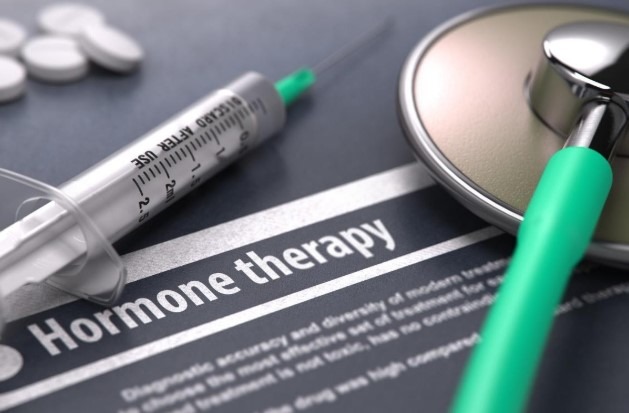If you’re really into working out, you might have started looking for ways to get an even greater effect from the efforts you put in. There are plenty of pre- and post-workout supplements you can take to improve your performance and speed up your recovery. One that’s getting a lot of attention right now is peptides.
What is a peptide, and how can it help to support your health? Keep reading to learn the answer to this important question and more!

What is a Peptide?
First, let’s start with the basics. A peptide is a smaller version of a protein. Both are made up of amino acids, and, in general, a compound with fewer than 50 amino acids is considered a peptide while those with more are called a protein.
When creating supplements, many companies will break proteins down into peptides so that the body can more easily absorb them.
Your body naturally makes peptides and they often act as hormones that send messages through your blood from one tissue to another.
Some peptide supplements mimic the natural peptides found in your body. These are designed to boost your production of human growth hormone (HGH) and/or testosterone. This, in turn, kickstarts fat loss and muscle growth, reduces inflammation, and can help enhance your body’s ability to heal.
Collagen is one of the most popular peptides. This is the protein that makes up your skin, nails, hair, connective tissue, and bones. Many people take collagen for its anti-aging properties.
Another popular peptide is creatine, which is often used for muscle building and enhancing athletic performance. Some other peptides that are commonly used for improving health and getting better workout results include:
- Ipamorelin
- Sermorelin
- MK 677
- BPC-157
- TB-500
Keep reading to learn more about the difference between Sermorelin versus Ipamorelin. If you’re interested in maximizing the benefits, spend some time doing your research so you can find out more about your options before you get started.
Potential Benefits of Peptides
There are many ways that peptide therapy can help improve your health. This includes:
- Improving your immune function
- Reducing inflammation
- Killing microbes
- Preventing blood clots
- Lowering blood pressure
Peptides also have a powerful antioxidant effect that can help protect your cells from damage. In addition to anti-aging and workout support, peptides can also help prevent age-related bone loss and improve wound healing.
How Do You Take Peptides?
Many people take peptides by injecting them into their bodies. However, there are other methods, including topical cream and transdermal patches. They can also be applied to the inside of your mouth or consumed in other ways that ensure they will be absorbed into your body, like rapid-release tablets.
Research is continuing, so you can expect new developments to arise over the coming years.
Do Peptides Have Side Effects?
In those who are already healthy, there is very little chance that peptides will cause any serious adverse side effects. This is partially due to the fact that peptides are naturally present both in your body and in some of the foods you eat.
However, it’s important to note that the US Food and Drug Administration (FDA) doesn’t regulate supplements in the same way as they regulate medications. For this reason, you’ll want to take some precautions when you’re taking any kind of supplements.
If you’re using a topical cream containing peptides, then you might have some skin issues like itching, a rash, or other skin sensitivity. When injecting peptides, you may notice itching around the injection area, dry mouth, increased hunger, and tingling or numbness.
In some cases, more severe side effects have occurred. This is rare, but may include:
- Increased blood pressure
- Joint pain
- Decreased fertility
- Extreme kidney pain
- Increase in freckles
- Darkening of moles
If you notice that you’re having unpleasant side effects, discontinue use right away and consult with your doctor.
It’s also a good idea to talk to your doctor before taking any kind of supplements, including peptides. This will help you avoid any potential adverse reactions with other medications.
If you’re pregnant, breastfeeding, or you have any medical conditions you should avoid using peptides in any form until you can discuss it with your doctor.
Where Can You Buy Peptides?
Since peptides aren’t regulated, it’s critical that you only buy peptides from reputable vendors. This will help ensure that you’re getting a high-quality product that you know you can trust. When you find a company that appeals to you, take the time to browse through their website and learn about their products.
Some Final Thoughts
While peptide therapy is often effective at burning fat and building muscle, it’s unlikely that you’ll get the results you’re looking for by taking this supplement on its own. If you’re really into improving your health, then peptides should be one part of an overall lifestyle change. It’s also likely that you’ll need to continue the therapy for several months before you start to see significant results.
As with all supplements, it’s important to have realistic expectations and keep a close eye out for any side effects that might develop.
Take Control of Your Health Today
Now that you know the ins and outs of peptide therapy, you can decide whether it’s right for you. Whichever choice you make, don’t stop there!
Explore more of our blog for incredible health tips and the best research to help you make good choices to support your long-term wellbeing.
I’m a 20-something stay-at-home mother and wife. I have an amazing husband, a beautiful daughter, two loving dogs, and a lazy cat. I wouldn’t change my life for anything! I love to read, listen to music, cook and blog!

Speak Your Mind